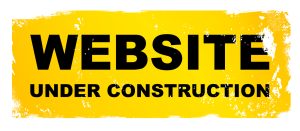EXPERIENCED AND PROFESSIONAL
Refinance Your Mortgage!
An Effective Foreclosure Solution in Georgia
Need help? Contact Us
Request a Appointment
Refinancing as a Foreclosure Solution in Georgia
The possibility of foreclosure is a stressful situation for any homeowner. Luckily, a range of solutions are available to circumvent such circumstances, with refinancing your mortgage being one of the most effective routes. In Georgia, where foreclosure laws tend to favor lenders and processes can be relatively swift, refinancing your mortgage can be a particularly viable option.
Refinancing involves replacing your existing mortgage with a new one, usually with more favorable terms. This may involve securing a lower interest rate, adjusting the length of your mortgage, or transitioning from an adjustable-rate mortgage to a fixed-rate mortgage. The primary aim is to reduce your monthly payments, making it more manageable and reducing the risk of foreclosure.
In Georgia, foreclosures typically follow the non-judicial process, which can be quick compared to other states. That's why proactive measures like refinancing can be vital. When you refinance your mortgage, you essentially start over with a new loan. You can use this new loan to pay off your existing mortgage, effectively ending the risk of foreclosure.
Refinancing as a foreclosure solution can be beneficial in several ways:
Lower Monthly Payments:
A lower interest rate or extended loan term can decrease your monthly payments, improving affordability and reducing the risk of missed payments.
Fixed Interest Rates:
If you currently have an adjustable-rate mortgage, refinancing to a fixed-rate mortgage can help avoid future payment increases.
Cash-out Refinancing:
If you have enough equity, cash-out refinancing allows you to take out a new loan for more than you owe on the current mortgage. The excess can be used to manage any financial hardship.
Understanding Georgia's Refinancing Laws
While refinancing is generally regulated at the federal level, it's still important to understand Georgia's specific laws. For instance, Georgia has a "right of rescission" period, where a homeowner has until midnight of the third business day after signing the loan agreement to cancel the refinance without penalty.
Also, be aware that Georgia law prohibits predatory lending, including excessive fees or interest rates. If you believe a lender is acting unscrupulously, you can report this to the Georgia Department of Banking and Finance.
Navigating the Refinancing Process
Refinancing can be a powerful tool for Georgia homeowners facing the risk of foreclosure. By understanding the process and carefully considering your options, you can navigate this difficult situation and
Before considering refinancing, it's important to:
Check Your Credit Score:
Your credit score significantly influences your eligibility for refinancing and the rate you'll receive. Ensure you understand your current credit standing before beginning the process.
Assess Your Home's Equity:
Lenders typically require you to have at least 20% equity in your home to refinance. Equity is the portion of your property that you've paid off versus what you still owe.
Shop Around:
Reach out to multiple lenders to understand the rates and terms you might be eligible for. This will help you find the most beneficial deal.
Consider the Costs:
Refinancing is not free. You'll have to pay closing costs, which typically range from 2% to 5% of the loan amount. Ensure the potential savings outweigh these costs.
Consult with Professionals:
Speak with financial advisors, attorneys, or nonprofit housing counselors to ensure you're making the right decision for your circumstances.
In conclusion, refinancing can be a viable foreclosure solution for some homeowners in Georgia. However, it's important to consider the potential costs and your personal financial situation. It's recommended to consult with a mortgage advisor or financial planner to determine if refinancing is the best solution for you.
© All Copyrights 2023 Metropolitan Realty Group
Website powered by LeadMode Digital Marketing

